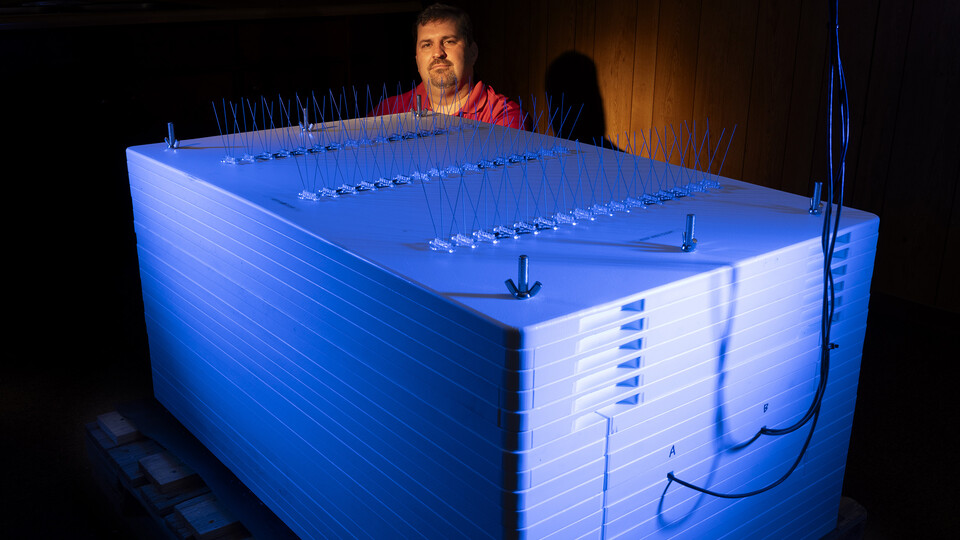
by Geitner Simmons | IANR Media
The University of Nebraska–Lincoln is now home to a neutron monitor, a sophisticated device that provides a crucial service by enabling correct real-time soil moisture and hydrology readings in Nebraska and nationwide. The monitor is only the third such device in the United States, and the only one located outside the East Coast.
The soil moisture corrections the device enables are needed because solar activity can disrupt the function of another device — cosmic ray neutron sensors. Across Nebraska, those upright metal devices stand in fields like little robots on sentry duty. The sensors capture and count neutrons reflecting off the Earth’s surface after coming from outer space.
Real-time readings from the sensors are converted to soil moisture data and are important for making agricultural decisions and monitoring long-term climate change.
But when solar flares reach high levels, the resulting electromagnetic interference causes errors in the sensors’ soil moisture readings.
The powerful burst in solar activity during May 10-11 this year provided an example. The solar storm — the strongest since 2003 — not only affected soil moisture sensors; it also disrupted ag producers’ GPS access right as they were set to begin spring planting. Those producers depend on GPS technology for tasks such as equipment navigation, automated row shutoffs and variable rate input applications.
“Such large events create nice auroras that we can view from Nebraska, but they can also have huge consequences for our modern life,” said Trenton Franz, professor of hydrogeophysics and associate director of research for the School of Natural Resources at the University of Nebraska–Lincoln. Through Zoom or in-person sessions, Franz regularly trains scientists abroad in the use of cosmic ray neutron sensors and the overall science.
See more picture and read the full story at https://news.unl.edu/newsrooms/today/article/husker-projects-advance-study-of-soil-moisture-hydrology/